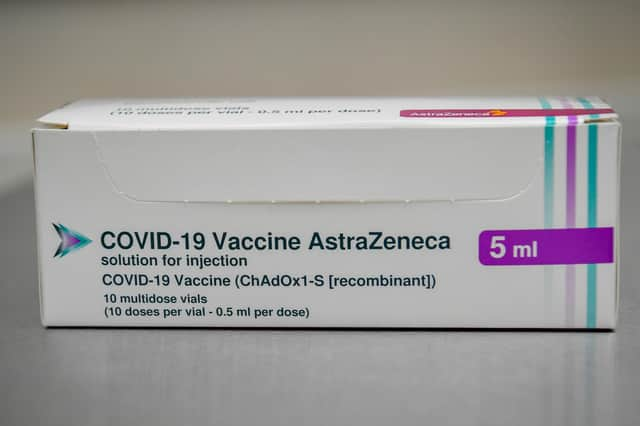More vaccine data needed to 'hold Scottish Government properly to account' on roll-out


Stian Westlake, chief executive of the Royal Statistical Society, told The Scotland on Sunday that while more data is being released in Scotland than in England, more could be done to help aid understanding on how well the vaccine roll-out is going.
The Scottish Government has refused to commit to publishing more detailed information on the Covid-19 vaccine roll-out in particular about supply, but already publishes weekly data on age, sex and location of vaccination.
Advertisement
Hide AdAdvertisement
Hide AdHowever, Jeane Freeman was criticised by the UK Government and forced to apologise after vaccine supply data – considered commercially sensitive by the UK Government – was released in the Scottish Government’s vaccine deployment plan.
It was then taken down and re-uploaded with the data removed.
The Scottish Government has come under significant pressure from opposition parties over the slower speed of the vaccine roll-out when compared to England, justified by the First Minister due to focusing more closely on care home residents in the early stages.
On the requirement for more data to be released, Mr Westlake of the Royal Statistical Society said: “The data that Scotland has made available is more detailed than that provided for England - this is very welcome.
"But even more could be done: we hope the Scottish Government and Public Health Scotland will continue to build upon their data of who has had the vaccine and where, as well as on supply levels. This will allow people to assess whether targets are being met and hold the Government properly to account on this vital issue.
“The UK’s four nations must work together so comparisons can be better made between them and lessons learnt. Everyone appreciates this is a work in progress, and we hope these improvements are a priority for the four governments at this key stage of the vaccine roll-out.”
It came as Ed Humpherson, director general for regulation at the Office for Statistics Regulation wrote to all four UK administrations requesting additional data be released on a more consistent basis.
In his letter he wrote: “The breakdowns provided in each part of the UK are not consistent, but across all administrations, more granular information will be required to support a variety of uses.
Advertisement
Hide AdAdvertisement
Hide Ad"For example, the public across the UK will want to understand when they, family members, friends or co-workers are likely to be vaccinated and how the programmes are progressing
“Information that will be useful for analysis in due course could include the type of vaccine given, the distance travelled to get a vaccination and, if someone declined the vaccination, the reason why.”
In response a Scottish Government spokesperson said: “We already publish daily statistics on the number of people who have received their first and second dose of the vaccine, and Public Health Scotland (PHS) publish weekly breakdowns by age, sex, JCVI eligibility criteria, NHS health board and local authority.
“The Scottish Government and PHS are committed to publishing more data to understand progress of the vaccination programme. This reporting is being kept under review and will be expanded in due course.”
A message from the Editor:
Thank you for reading this article. We're more reliant on your support than ever as the shift in consumer habits brought about by coronavirus impacts our advertisers.
If you haven't already, please consider supporting our trusted, fact-checked journalism by taking out a digital subscription.
Comments
Want to join the conversation? Please or to comment on this article.